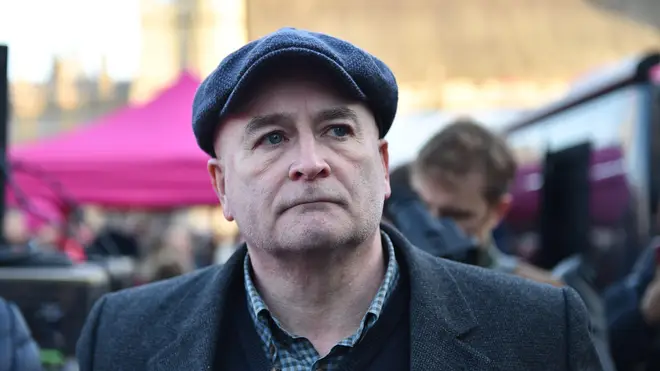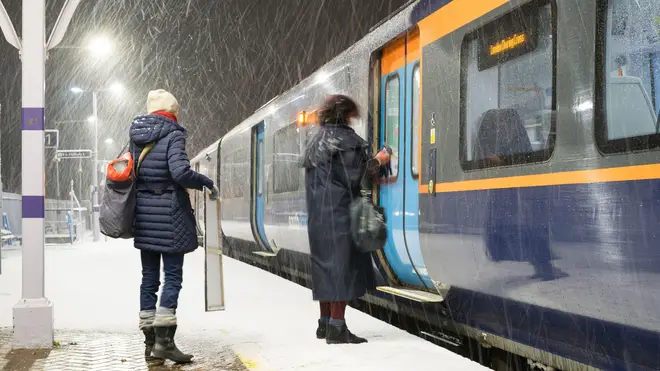
James O'Brien 10am - 1pm
12 December 2022, 16:14 | Updated: 12 December 2022, 17:28

RMT has confirmed Christmas rail strikes will go ahead after rejecting the latest pay offer from Network Rail.
Members of the Rail, Maritime and Transport union (RMT) will press ahead with two 48-hour strikes at Network Rail - and 14 train companies - from Tuesday and Friday.
Trains will run from 7.30am to 6.30pm on this week's strike days, although many parts of the country will have no services, including most of Scotland and Wales.
More strikes are also planned between December 24 and 27.
The RMT said 63.6% voted to reject Network Rail's offer on an 83% turnout.
🚨🚨🚨 | NO TO NETWORK RAIL OFFER@RMTunion members working for Network Rail emphatically reject company offer
— RMT (@RMTunion) December 12, 2022
63.6% voted to reject the @networkrail offer on an 83% turnout.
General secretary Mick Lynch said: "This is a huge rejection of Network Rail's substandard offer and shows that our members are determined to take further strike action in pursuit of a negotiated settlement.
"The Government is refusing to lift a finger to prevent these strikes and it is clear they want to make effective strike action illegal in Britain.
"We will resist that and our members, along with the entire trade union movement, will continue their campaign for a square deal for workers, decent pay increases and good working conditions."

Network Rail chief executive Andrew Haines said: "The RMT leadership needs to think long and hard about what to do next. Further strike action will cause further misery for the rail industry and for their members who will lose pay.
"This news is especially frustrating given that we learnt today that colleagues represented by Unite union have accepted the very same offer put to RMT members. The RMT are the outliers here. They need to stop playing politics and work with us to bring this dispute to an end.
"There is clearly a significant number of Network Rail colleagues who want this deal but are caught up by these needless strikes and collective bargaining.
"Our offer, which is worth over 9% with a guarantee of no compulsory redundancies and no changes to anyone's terms and conditions, remains on the table.
"Our railway still faces a real financial crisis and because of that we will continue with the consultation around the implementation of the maintenance reforms.
"Sadly, with strikes now set to go ahead, passengers can expect to see widespread rail disruption throughout the week. We will continue to work closely with operators to run as many services as possible but we continue to ask passengers to only travel if absolutely necessary."

Despite RMT standing firm, a strike by members of Unite at Network Rail will not go ahead after they voted to accept the offer.
Network Rail had offered a 5% pay rise for this year - backdated to January - with another 4% at the start of 2023 and a guarantee of no compulsory job losses until January 2025.
The RMT's executive recommended rejecting the offer, saying it was linked to "significant" changes to working practices.
It comes after ministers held an emergency cobra meeting on Monday to discuss plans for civil servants and military staff to provide cover for striking workers.
Paramedics, nurses, Royal Mail staff, and Border Force officials are also among those staging walkouts in disputes over pay, jobs, and conditions.
Last night, Cabinet Office minister Oliver Dowden urged union bosses to call off the "damaging" strike action.
"The stance the unions have taken will cause disruption for millions of hardworking people over the coming weeks," he said.
Mr Dowden, who will led the meeting today, and will do on Wednesday too, said the government was working to keep disruption "to a minimum", though he acknowledged key services would suffer.
He said that inflation-level pay rises across the public sector would cost taxpayers £28billion, which works out to nearly £1,000 per household.